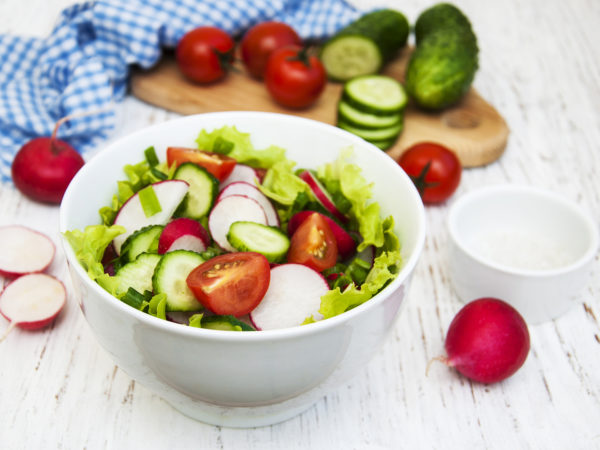Rules for a Low-Iodine Diet?
What foods should you avoid on a low-iodine diet prior to radioactive iodine ablation for thyroid cancer?
Andrew Weil, M.D. | June 28, 2005

Radioactive iodine ablation is a treatment given about two months after surgery for thyroid cancer to destroy (ablate) any thyroid cells remaining in the body. Prior to this treatment, patients often are advised to go on a low iodine diet for about two weeks to deplete the body of its iodine stores, a strategy believed to make ablation more effective. (Institutions differ on recommendations for how long to follow this diet prior to ablation.) You probably will be advised to continue it for about two days after the procedure.
Iodine turns up in a lot of foods because it is widely used for purposes that you might find surprising, including the care and feeding of animals and as a stabilizer in food processing. It is also a component of red food dyes. And because salt may be supplemented with iodine, varying amounts may show up in all kinds of foods and beverages containing salt.
You’ll note as you look through the list below that dairy products are among the foods to avoid. As a result, you may be losing out on the calcium normally found in your diet. Although you can get calcium from such vegetables as collards, mustard greens, kale, broccoli, bok choy, if you’re not already taking a calcium supplement, it would be a good idea to take about 1,000 mg of calcium citrate daily while on the low-iodine diet.
Here’s a quick rundown of what foods to avoid on a low-iodine diet:
- Iodized salt (non-iodized salt is okay).
- All dairy products (animals secrete dietary iodine into milk and animal feed contains iodine).
- Seafood including fish, all shellfish, seaweed, kelp, sardines, canned tuna.
- Processed meats including bacon, sausage, hot dogs, luncheon meats.
- Egg noodles, pastries, cookies, packaged rice mixes.
- Canned or dried fruit, canned fruit juices, Tang, Hi-C.
- Highly salted foods such as canned soups, ketchup, salted peanut butter, commercial salad dressings (there may be iodine in the salt).
- Snack foods including pretzels, chips, corn chips and crackers.
For additional details on the low-iodine diet check the Abramson Cancer Center of the University of Pennsylvania Web site at www.oncolink.upenn.edu or ThyCa, the Thyroid Cancer Survivors’ Association Web site at www.thyca.org.
Andrew Weil, M.D.









